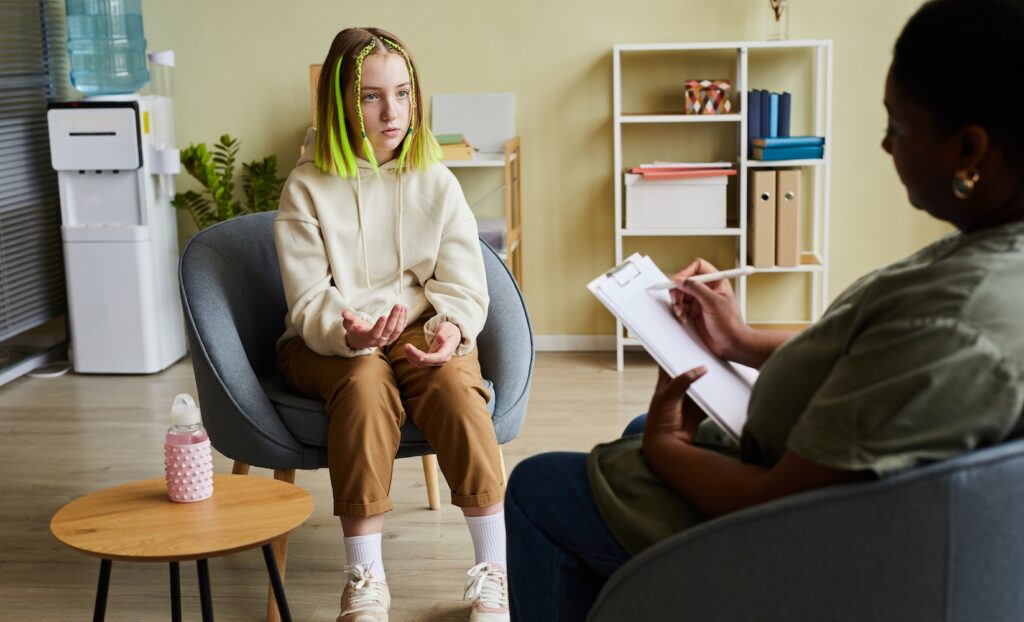Watchdog group exposes radical, liberal ideology of school-based health centers
A watchdog group released a report that exposes the liberal ideological aims of some public School-Based Health Centers (SBHCs), which include the promotion of abortion and gender transition…

A watchdog group released a report that exposes the liberal ideological aims of some public School-Based Health Centers (SBHCs), which include the promotion of abortion and gender transition services.
The report from Parents Defending Education (PDE) said “some centers offer students access to abortion (including emergency contraception – such as Plan B) as well as gender-affirming care.”
The PDE investigation reveals that many of these SBHCs are being promoted or funded by progressive allies such as the American Federation of Teachers, the second largest teachers’ union in the U.S.; abortion provider, Planned Parenthood; Reproduction for All (formerly known as NARAL Pro-Choice America); an LGBTQ group called School-Based Health Alliance; and La Raza, a controversial Hispanic advocacy group that is funded under a grant from the Health Resources and Services Administration, an agency of the U.S. Department of Health and Human Services.
One such SBHC in California is run by Clinica La Raza, which offers students access to “gender affirming care” including “chest binders, shapewear, etc.,” “information and counseling about transitioning,” “gender-affirming hormone therapy and other types of medical transitioning services,” and more.
In addition to California, PDE cited schools in Illinois, Colorado, Maine, Washington State, and Washington, D.C., as having SBHCs with policies that allow staff to hide gender transitions from parents.
According to a database maintained by PDE, schools in California, Maine, Massachusetts and Washington provide so-called emergency contraception services, which would include the distribution of Plan B “morning after” pills, which abort babies using an overdose of hormones.
Four districts in California, Oregon and Illinois partner with Planned Parenthood, said PDE.
One SBHC even uses a ruse to allow students to get permission for some of the more controversial practices, PDE reports.
The student newspaper at Evanston Township High School bragged that students only need to get a one-time generic form signed by parents to access any of the SBHC’s services, including free contraceptive pills, which are provided by a grant by the city of Evanston.
“This means that, with nurse approval, students can get prescriptions for short-term hormonal birth control like the birth control pill and other similar methods.”
But in some cases, kids don’t even need the consent form to get an abortion pill.
“However, even without the parental consent form students have access to free condoms and Plan B, an emergency contraceptive that can be taken up to 72 hours after sex,” reported the school paper.
In that way, SBHCs are different from other medical providers who have a legal obligation to consult parents before medical treatment.
“[T]hey’re not working for your parents or guardians, they’re there to serve you,” the paper continued.
PDE cited several reports, including one from 2020 and one from 2023 that cast doubt on the relationship between student learning and the existence of the school health centers.
The 2023 report found no “evidence that our SBHC model improved academic achievement,” but did find that SBHCs benefitted “diagnosing and treating children with developmental and mental health disorders,” according to PDE.
PDE recommended all parents ask their schools questions if they have health centers:
- What services are offered through the school-based health center?
- What is the parental notification policy for students to receive services at the school-based health center?
- How is parental consent for minors obtained before students access any type of services at these centers?
- Does the district/school have a clear process posted publicly regarding prior parental consent to access services? If so, where can parents access it?
- Can parents review and approve the types of medical care or treatments their children might receive at these centers?
- What outside organizations provide funding or other assistance to the school-based health center?
- How does the school district ensure that parents have access to relevant information about the school-based health centers and their operations?
- If a student that falls under the mature minor doctrine receives a service or medication that causes negative side effects, who is liable for the outcome?
- Will parents have access to the medical file created at the school-based health center?
- Does the school-based health center offer emergency contraception?



